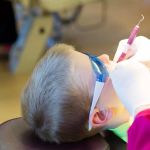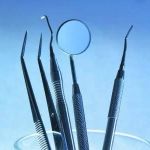Emergency Tooth Care: What to Do When Dental Issues Arise
Dental emergencies can strike at any moment, leaving you in pain and uncertain about what steps to take. Whether it’s a sudden toothache, a cracked tooth, or a lost filling, knowing how to handle dental issues immediately can make a huge difference in your oral health and the potential for long-term damage. In this guide, we’ll walk you through emergency tooth care, offering tips on what to do in urgent situations and how to manage your dental health until you can reach a professional.
- 1. What is Emergency Tooth Care?
- 2. Common Dental Emergencies and How to Handle Them
- 3. When to Seek Professional Help for Tooth Emergencies
- 4. At-Home Solutions for Emergency Tooth Care
- 5. How to Prevent Dental Emergencies in the Future
1. What is Emergency Tooth Care?
Emergency tooth care refers to the actions taken when a dental issue occurs suddenly or unexpectedly, causing significant pain or discomfort. These issues may involve broken teeth, lost fillings, or infections that require immediate attention. Emergency tooth care involves temporary steps to alleviate pain and prevent further damage until a dentist can provide professional treatment.
In these situations, it’s crucial to remain calm and know the correct steps to take. Immediate actions can sometimes make the difference between saving a tooth or needing more extensive dental work. Being prepared for dental emergencies can save you from unnecessary stress and additional costs.
2. Common Dental Emergencies and How to Handle Them
Dental emergencies vary in severity, but there are several common situations that require prompt attention. Here are a few of the most frequent dental emergencies and how to handle them:
- Toothaches: A sudden, severe toothache is often a sign of infection or decay. To alleviate the pain, rinse your mouth with warm saltwater, take over-the-counter pain relievers, and avoid putting pressure on the affected tooth. If the pain persists, consult a dentist immediately.
- Chipped or Broken Tooth: If you chip or break a tooth, rinse your mouth with warm water to clean the area and apply a cold compress to reduce swelling. Save any pieces of the tooth if possible. Seek professional dental care right away to avoid further damage.
- Knocked-Out Tooth: If a tooth is knocked out, try to place it back into the socket gently, holding it by the crown and not the root. If this isn’t possible, store the tooth in milk or saline solution and seek immediate dental care. The chances of reimplantation are highest within an hour of the injury.
- Lost Filling or Crown: A lost filling or crown can cause pain and sensitivity. If you have a temporary dental adhesive or dental wax, use it to protect the exposed tooth. Avoid chewing on that side of your mouth and schedule an appointment with your dentist.
- Abscessed Tooth: An abscess is a painful infection at the root of the tooth, and it requires immediate attention. Rinse your mouth with warm saltwater and apply a cold compress to manage swelling. Seek professional help right away to treat the infection and prevent it from spreading.
3. When to Seek Professional Help for Tooth Emergencies
In some cases, emergency tooth care can be managed at home with simple remedies, but it’s important to know when to seek professional help. Here are some signs that you should contact a dentist immediately:
- Severe Pain: If you’re experiencing extreme, unrelenting pain that doesn’t subside with over-the-counter medication, it’s time to consult a dentist.
- Persistent Bleeding: If bleeding from a tooth or gums doesn’t stop after 10-15 minutes of applying pressure, seek urgent dental care.
- Swelling or Fever: Swelling around the mouth or jaw, especially with a fever, can indicate an infection that needs immediate medical attention.
- Visible Fracture: If you notice a large crack or break in your tooth, it could be vulnerable to further damage or infection. Contact your dentist as soon as possible to prevent complications.
Ignoring these signs or delaying treatment can lead to more serious complications, including permanent damage to your teeth or gums. In some cases, early intervention can save your tooth and minimize the need for more invasive treatments.
4. At-Home Solutions for Emergency Tooth Care
While professional dental care is essential for addressing dental emergencies, there are several temporary solutions you can implement at home to reduce pain and prevent further damage until you can see a dentist:
- Saltwater Rinse: A warm saltwater rinse can help clean the affected area and reduce pain from toothaches, abscesses, or gum irritation.
- Cold Compress: Applying a cold compress to your face can help reduce swelling and numb pain associated with toothaches, injuries, or swelling.
- Over-the-Counter Pain Relievers: Ibuprofen or acetaminophen can be used to manage pain temporarily, but they should not be used as a long-term solution. Always follow the instructions on the packaging.
- Dental Wax or Temporary Fillings: If you’ve lost a filling or have a rough tooth, you can apply dental wax or over-the-counter temporary filling materials to protect the exposed area.
Remember that these solutions are only temporary and are not a substitute for professional dental care. They are designed to provide immediate relief until you can see a dentist.
5. How to Prevent Dental Emergencies in the Future
While emergencies are often unpredictable, there are steps you can take to reduce the likelihood of a dental crisis. Here are some prevention tips to maintain a healthy smile and avoid common dental emergencies:
- Regular Dental Checkups: Visit your dentist regularly for checkups and cleanings to identify potential issues before they become emergencies.
- Wear a Mouthguard: If you play sports or grind your teeth at night, wearing a mouthguard can prevent injuries and reduce the risk of tooth damage.
- Good Oral Hygiene: Brushing and flossing daily, along with using mouthwash, can help prevent cavities, gum disease, and other dental issues that could lead to emergencies.
- Avoid Hard Foods: Crunching hard foods, such as ice or hard candy, can cause tooth fractures. Be mindful of your diet and avoid putting unnecessary stress on your teeth.
By taking care of your teeth and visiting your dentist regularly, you can minimize the risk of dental emergencies and maintain optimal oral health.
Dental emergencies are never easy, but knowing how to handle them can make all the difference. If you’re facing an urgent dental issue, make sure to seek professional help as soon as possible. For more information on emergency tooth care and to book an appointment, visit Dentistry Toothtruth and get the expert care you need.







 Edmond Dental Center: Michael Chandler, DDS5.0 (404 review)
Edmond Dental Center: Michael Chandler, DDS5.0 (404 review) Ramsey Dental Center4.0 (242 review)
Ramsey Dental Center4.0 (242 review) Chris Wong DDS4.0 (305 review)
Chris Wong DDS4.0 (305 review) Smile Academy Pediatric Dentistry4.0 (48 review)
Smile Academy Pediatric Dentistry4.0 (48 review) Glendale Holistic Dentistry - Los Angeles Dentists Group4.0 (19 review)
Glendale Holistic Dentistry - Los Angeles Dentists Group4.0 (19 review) Willamette Dental Group - Puyallup4.0 (117 review)
Willamette Dental Group - Puyallup4.0 (117 review) The Importance of Oral Health Education During Pregnancy for a Healthy Pregnancy
The Importance of Oral Health Education During Pregnancy for a Healthy Pregnancy Best Tips for Brushing Your Teeth Properly for Healthy Gums: Essential Techniques for Oral Health
Best Tips for Brushing Your Teeth Properly for Healthy Gums: Essential Techniques for Oral Health Why Skipping Dental Checkups Can Lead to Bigger Oral Health Problems
Why Skipping Dental Checkups Can Lead to Bigger Oral Health Problems Advantages of Porcelain Dental Restorations
Advantages of Porcelain Dental Restorations How Can Diabetes Cause Tooth and Gum Problems? Preventing and Managing Oral Health Issues
How Can Diabetes Cause Tooth and Gum Problems? Preventing and Managing Oral Health Issues Healthy Habits for Promoting Good Oral Health and Hygiene: Tips for a Healthy Smile
Healthy Habits for Promoting Good Oral Health and Hygiene: Tips for a Healthy Smile